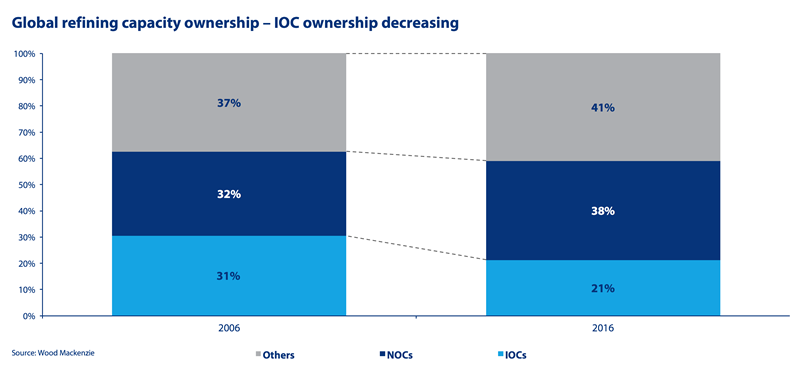To own or not to own? That's one of the key questions refinery owners have been asking over the past 10 years. For some industry players, owning refinery capacity is no longer the necessity it used to be, while for others it has become central to business success. As a result, the refinery 'buck' is being passed on.
The reasons for such significant ownership changes are complex. In some regions, margin volatility linked to declining demand for certain refined products is resulting in inconsistent returns.
There have also been successive waves of environmental regulation for refiners to deal with, increasing the capital intensity of the asset base. Finally, the introduction of a cohort of new world-scale, low cost, complex assets has eroded the competitive positioning of incumbent owners.
So who's doing the refining? International Oil Company (IOC) ownership of the global refining stock has fallen from around 30% in 2006 to now marginally above 20% — a drop of around 5 million barrels per day — with National Oil Companies and others picking up the baton.
It's evident that the refinery ownership community is changing and becoming more diverse, but why? Are financial incentives declining? Or are other forces at play?
It's evident that the refinery ownership community is changing and becoming more diverse, but why? Are financial incentives declining? Or are other forces at play?
Read more in our new report, which also considers:
- Competitive and regulatory drivers
- Key themes and incentives for buyers and sellers
- Analysis of global refinery margins
- Opportunities in the refining market
To continue reading this complimentary report from our M&A consulting team, fill in your details in the form above and submit.
